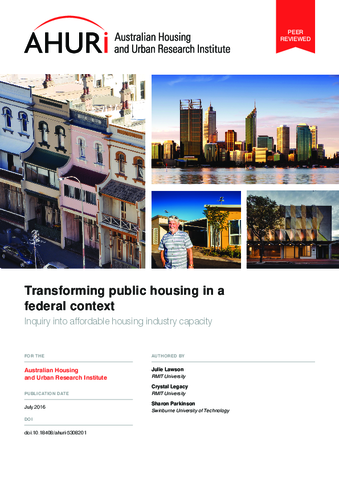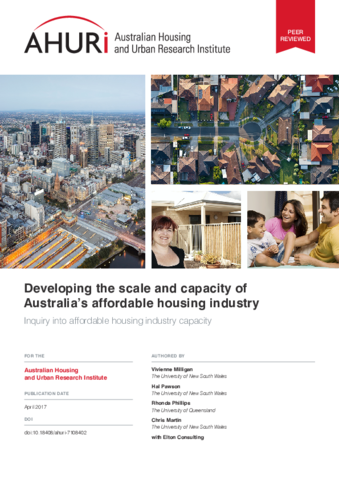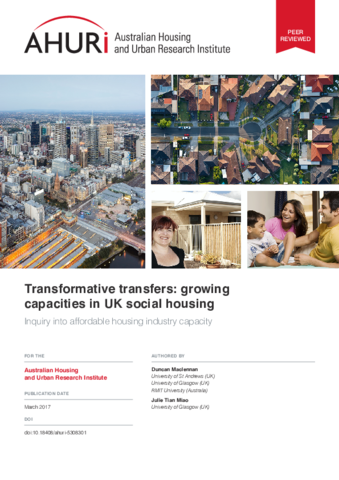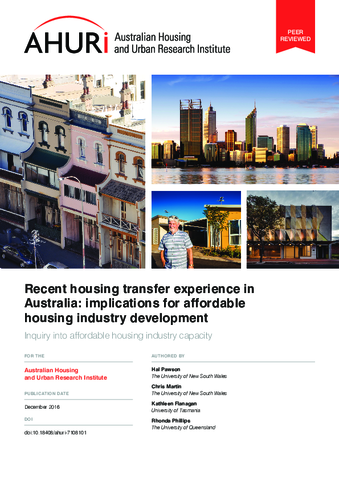This research examined the transfer of public housing to community housing providers (CHPs), using case studies in South Australia (SA), Tasmania and Queensland. It is part of a wider AHURI Inquiry into Australian ‘affordable housing industry capacity.
In all the case study states, the transfer selection, contracting and transition processes built capacity in government and housing providers, but were costly. In the two states where transfers progressed to completion, significant process issues were encountered—particularly in connection with Centrelink payments and the transfer of tenant credits and liabilities.
Transfers via long-term contracts mark a development in affordable housing industry finance, whereby assured cash flows may be accepted as sufficient security for credit. Financial modelling indicates that transfers on this basis may be a viable means for addressing moderate maintenance backlogs, enhancing community development and modestly expanding affordable housing portfolios. Recent transfer experience has also helped clarify the proper accounting treatment of transfers by long-term contract, with the assets concerned appropriately recorded as ‘disposals’ on the public accounts. While transfers have built capacity in CHPs, there may be other, more advantageous, ways for CHPs to upscale and develop their businesses.






